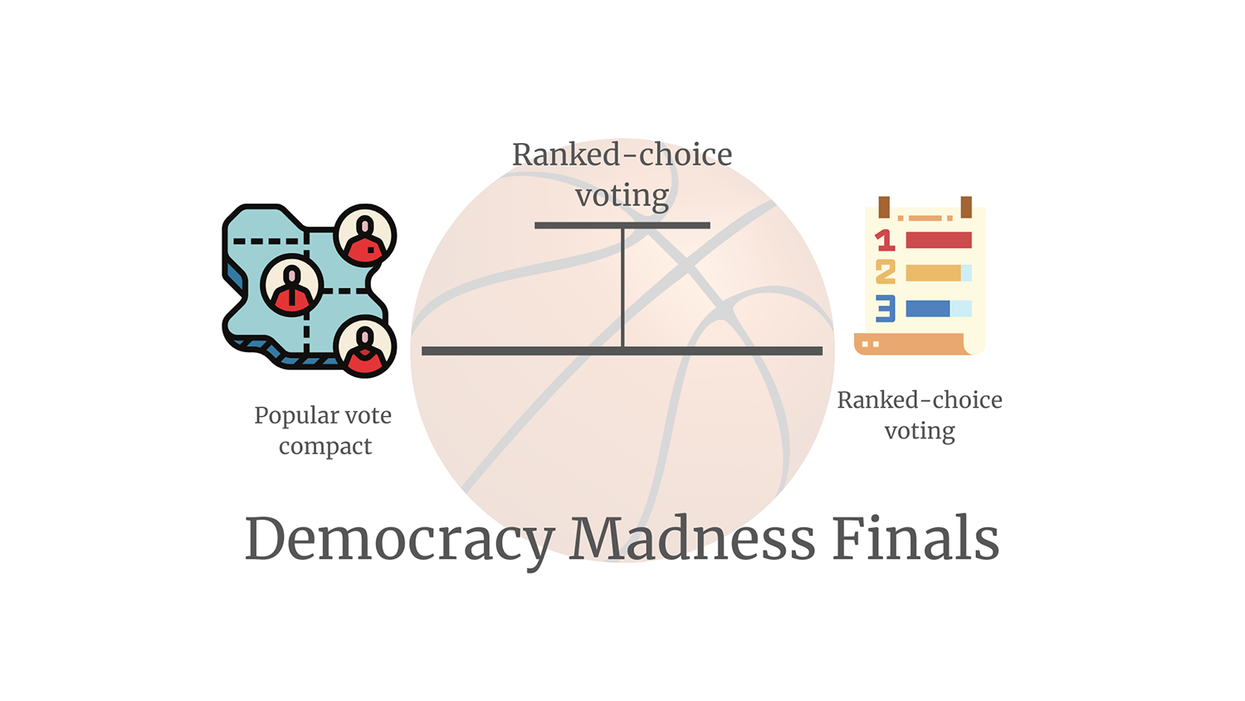The Democracy Madness champion has been crowned: Ranked-choice voting bested the Cinderella story of the tournament, a National Popular Vote Interstate Compact, to win our reader-driven challenge.
The winner, with 56 percent support, emerged over the weekend with the biggest burst of balloting since our contest started two months ago. That's when we asked you to start deciding which of 64 ideas for fixing the system would be the most transformative at ending the dysfunction and putting voters back at the center of things.
Ranked-choice voting is an alternative to the system used for most American elections throughout history — voters picking one candidate and the one with the most votes (even if it's only a plurality) winning.
Under RCV, voters list candidates in order of preference. If no one wins by securing a majority of first-place ballots, the candidate with the fewest No. 1 votes is eliminated and that person's ballots are redistributed based on their No. 2 rankings. These instantaneous runoffs repeat until one candidate emerges with majority backing.
The main benefit, proponents say, is to reward candidates who can capture the broadest coalition of support. Opponents fear RCV holds a high potential to incubate voter fraud.
The irony was not lost on some folks that RCV was fighting for the top prize in a single-vote contest.
The popular vote co mpact, which focuses on getting states to promise their electoral votes to the winner of the national popular vote (not their own), had edged out a pair of No. 1 seeds to make it to the final round of the Democracy Madness tournament, but couldn't conquer RCV.




















